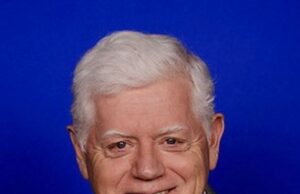Cantwell: Affordable and Reliable Energy Is Key to Ensuring Viable Island Economies
WASHINGTON, D.C. – July 14, 2015 – (RealEstateRama) — Today, U.S. Senator Maria Cantwell (D-Wash.), ranking member of the Senate Energy and Natural Resources Committee, highlighted the importance of federal agencies partnering with isolated communities to overcome the challenge of accessing affordable and reliable energy.
During a committee hearing, Sen. Cantwell expressed concern with the high energy prices in those areas and the resulting economic impacts.
“Remote island communities effectively bleed cash to operate and maintain their oil-based electrical and transportation equipment,” Sen. Cantwell said. “To me, this is a very important issue because energy is the lifeblood of any economy.”
Sen. Cantwell suggested that partnerships with the Departments of Energy and the Interior could help island communities overcome their energy infrastructure challenges. Workforce training programs can help ensure that these communities don’t just adopt the technology solutions, but also possess the skills to install and maintain them.
“Partnering with the federal government offers ways to overcome these challenges. First, by making sure [the island communities] can tap the technical expertise and resources of the Department of Energy and its laboratories to help deploy emerging technologies such as solar, wind, storage and advanced control technologies. Second, we must ensure these communities can leverage the grant programs administered by the Interior Department’s Office of Insular Areas,” Sen. Cantwell said.
Read her full statement below:
“Thank you, Chairman Murkowski, for holding this important oversight hearing. And I welcome the witnesses, including our former colleague Congressman Underwood and the Assistant Secretary – thank you so much for being here. I look forward to hearing today’s testimony about the challenges about reliable and affordable energy in remote communities in rural Alaska and islands, such as Hawaii and a number of our U.S. territories.
“To me, this is a very important issue because energy is the lifeblood of any economy. Alaska and Hawaii have challenges as it relates to reliable energy sources. And coming from a state where we have seen cheap hydropower build an economy over and over again, I just think this is such an incredibly important issue to how your economies will grow in the future.
“This committee has jurisdiction over relations between those in the U.S. and in the island territories. Part of our responsibility is ensuring that these communities have viable economies. And for that, there needs to be reliable and affordable energy.
“We need look no further than Puerto Rico – where electricity costs are more than twice the national average, and the public utility is carrying a debt of about $9 billion – to see the consequences of a dependence on high-cost oil and old equipment.
“In other territories or in isolated communities in Alaska and Hawaii, electricity costs are typically 3-5 times the average of the contiguous United States, and they constitute a significant challenge to economic development.
“Two summers ago, Chairman Murkowski and I traveled to remote areas in Alaska, and I saw firsthand the challenges they face in getting an energy supply and building an economy, particularly in the winter months. These communities effectively bleed cash to operate and maintain their oil-based electrical and transportation equipment.
“Newer, lower-cost electric generating and transportation technologies are increasingly available, but there are typically two barriers to deployment:
the lack of technical expertise to operate and maintain new technologies, and
since these are typically low-income communities, they often lack the capital resources or credit needed to finance the transition to less-expensive fuels and equipment.
“Partnering with the federal government offers ways to overcome these challenges. First, by making sure [the island communities] can tap the technical expertise and resources of the Department of Energy and its laboratories to help deploy emerging technologies such as solar, wind, storage and advanced control technologies.
“Second, we must ensure these communities can leverage the grant programs administered by the Interior Department’s Office of Insular Areas, such as the Empowering Insular Communities Program and the Maintenance Assistance Program. Similarly, the office helped establish the Pacific Power Association, to bring together island utility officials to learn together and to share best practices in meeting the challenge of providing reliable and affordable electricity in remote U.S. communities.
“So I am glad to have this important hearing today and thank you again for affording our colleague, Senator Hirono, a few minutes for her comments.”
















